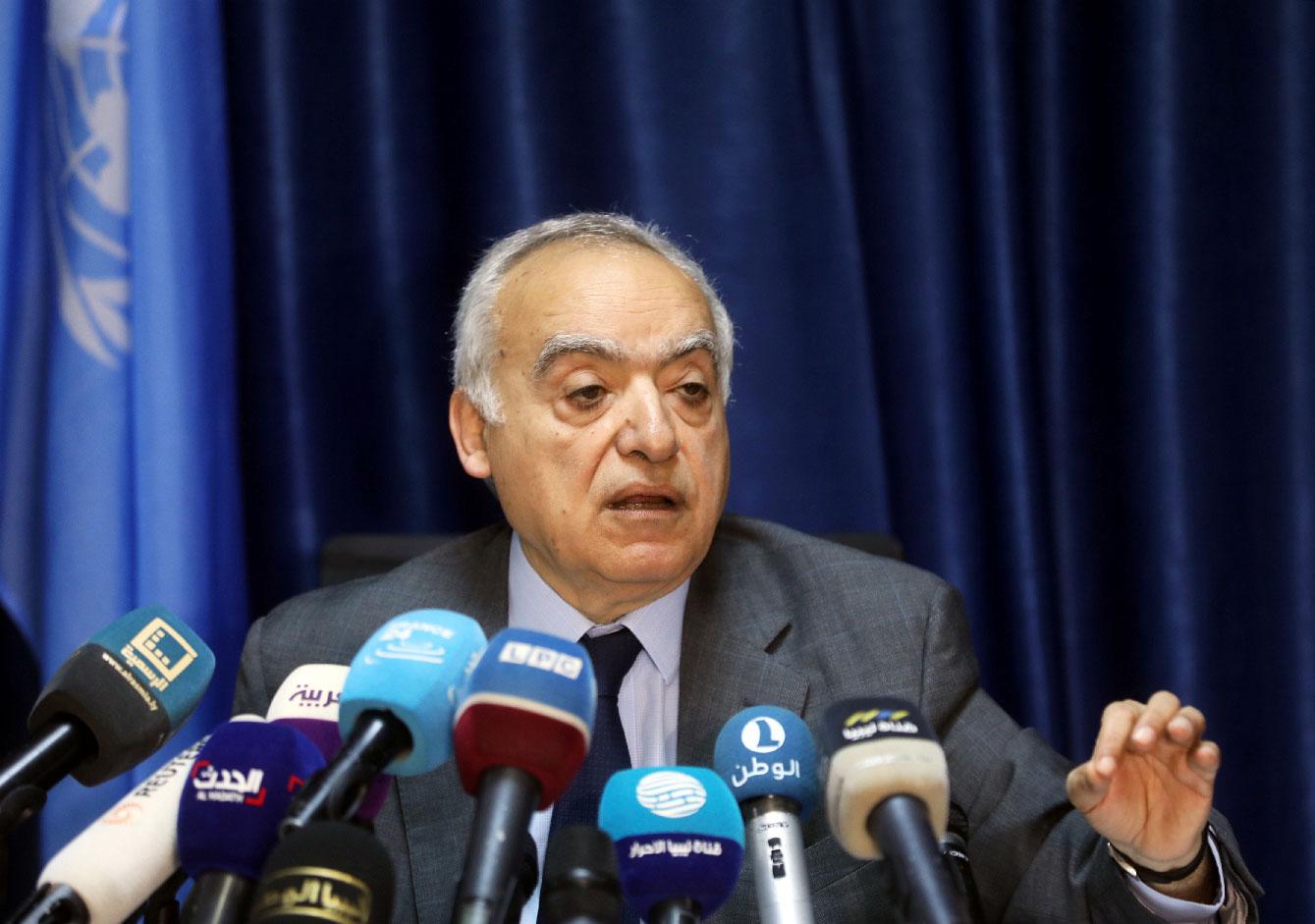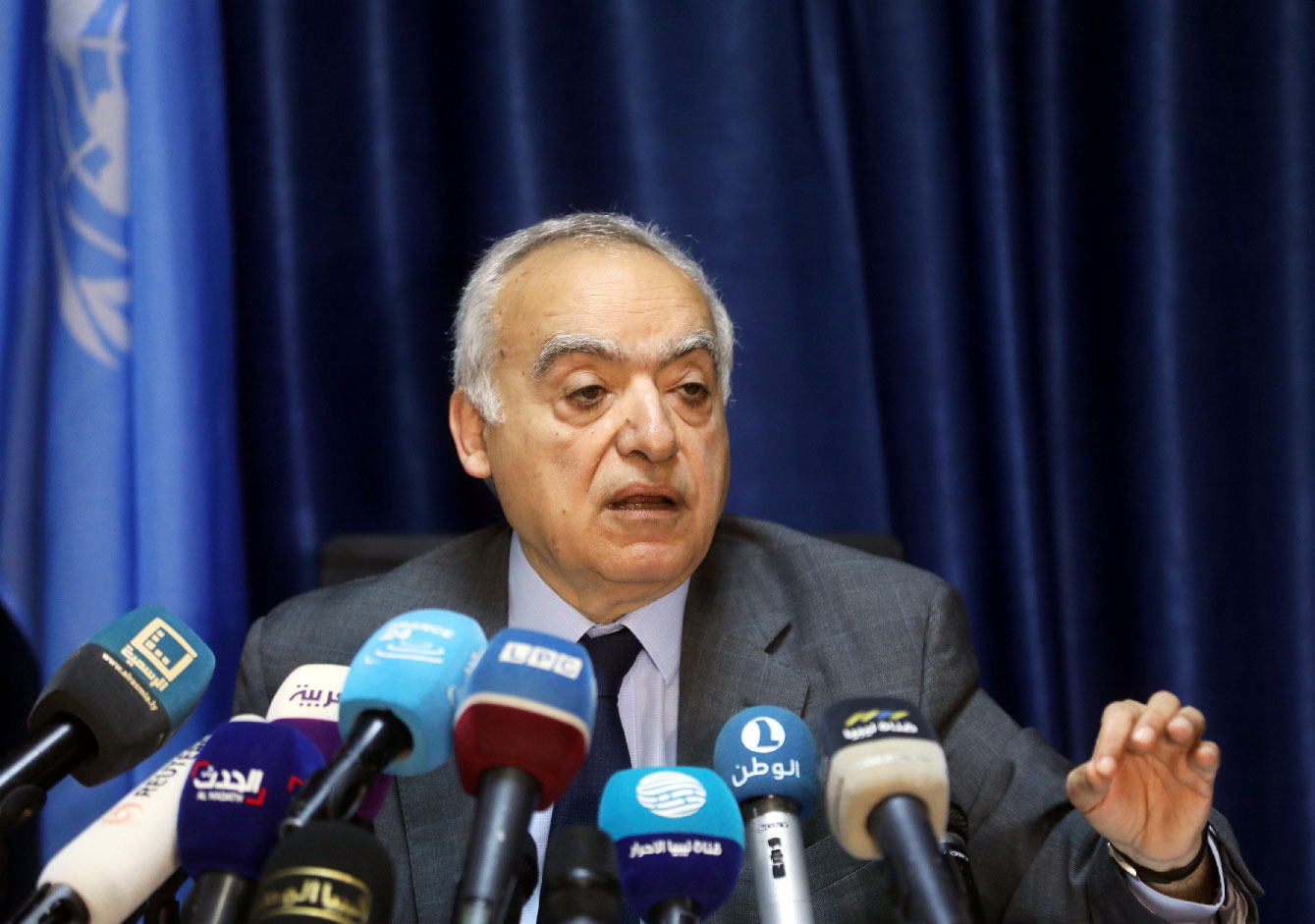UN envoy urges Libyans to unite at national conference
TRIPOLI - The United Nations will hold a long-awaited conference inside Libya in April to discuss a way out of the country's eight-year conflict, a UN envoy said on Wednesday, although it remains to be seen whether powerful factions will attend.
The forum will be open to all Libyans and take place in the southwestern town of Ghadames on April 14-16, envoy Ghassan Salame told reporters at the UN compound in Tripoli.
The meeting will not include any foreign parties, he said.
"We hope it will be a new opening for the country for stability," Salame told reporters, adding that up to 150 participants would join.
Salame had unveiled the idea of a "national conference" in November to prepare the ground for elections after an initial plan to stage a vote on Dec 10 had proved unrealistic given a lack of understanding between the main conflicting camps.
Two possible options
Libya has two governments, an internationally recognised administration based in Tripoli and a parallel version in the east allied to Khalifa Haftar, a military commander. The streets of much of the country have been controlled by a variety of armed factions since the overthrow of Muammar Gaddafi in 2011, including several from neighboring countries which survive on looting and human trafficking.
Salame has faced resistance to his proposed conference from the east, where Haftar's supporters have called for a military solution after his Libyan National Army (LNA) took control of the south, expanding beyond his eastern power base.
Haftar has not said whether he wants to march on Tripoli. But he has left some troops from a southern campaign in central Libya to build up pressure on Tripoli-based Prime Minister Fayez al-Serraj, who has no force of his own, to agree on a power sharing deal, diplomats say.
Salame urged the rival factions to seize the "crucial opportunity" of the National Conference next month to unite the country and chart a roadmap to peace after years of division and chaos.
He warned that if the opportunity isn't seized, "we will be faced with only two possible options: prolonged stalemate or conflict."
"Stalemate may also ultimately lead to conflict. Or conflict may erupt much sooner," he told the UN Security Council.
Salame told the Security Council that the United Nations is working with many parties ahead of the National Conference "to ensure as broad a buy-in as possible to the political process."
"What is clear is that the Libyan people fervently desire that their institutions be united as soon as possible," he said in a video briefing from Tripoli. "Unfortunately, they are up against powerful forces, which have materially profited from the country's chaos and division and are therefore loath to work towards a unification."
A path of peace
Salame warned that failure to advance the political process would demonstrate "that the country is totally controlled by force of arms."
But he said the National Conference offers a chance for all parties "to step back from the edge of this precipice" and "put aside their differences for the good of the country, to unite, to avoid war and to choose a path of peace and prosperity."
Salame said the National Conference will chart a roadmap to conclude the country's eight-year transitional period through parliamentary and presidential elections, held either simultaneously or separately.
It will also decide whether to endorse a National Charter drafted during consultations and recommend how to deal with a draft constitution produced by the Constitutional Drafting Assembly, he said.
Salame said the UN political mission in Libya hosted two rounds of preliminary talks between advisers to Serraj and Haftar, before the two leaders met in late February in Abu Dhabi.
The two leaders agreed that "Libya shall be a civilian and democratically governed state that enjoys full civilian control of the military, and a peaceful transition of power," he said. "The parties also agreed on the need to unify Libya's long-divided institutions and for the scheduling of national elections before the end of the year."
Salame said many principles aren't new and the talks started in September 2017, but "what is new is the sincerity to turn these words into the end of the transitional period through elections."
He called on Libyans in the coming days "to come together and to avoid acts of obstruction and incitement."
Salame cited "a notable uptick in the weaponization of media platforms as tools of incitement," warning that "this is tearing at Libya's fragile but vital social fabric and could well be used to instigate violence."



